DNA Today: A Genetics Podcast
Discover New Advances in the world of genetics, from technology like CRISPR to rare diseases to new research. For over a decade, multi-award winning podcast ”DNA Today” has brought you the voices of leaders in genetics. Host Kira Dineen brings her genetics expertise to interview geneticists, genetic counselors, patient advocates, biotech leaders, researchers, and more.
***Best 2020, 2021, and 2022 Science and Medicine Podcast Award Winner***
Learn more (and stream all 365+ episodes) at DNAtoday.com. You can contact the show at info@DNAtoday.com.
Episodes
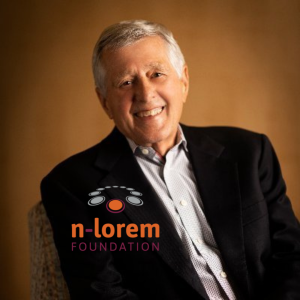
Friday Feb 19, 2021
Friday Feb 19, 2021
Biotech titan Dr. Stan Crooke joins host Kira Dineen to celebrate rare disease month! Dr. Crooke was the Founder of IONIS Pharmaceuticals, with extensive experience in the pharmaceutical industry developing more than 20 marketed drugs. He has published nearly 500 scientific publications, edited more than 20 books, and has numerous patents. Dr. Stan Crooke is now the Founder and CEO of n-Lorem Foundation, a new San Diego-based organization with an incredible mission of developing individualized RNA targeted medicines for patients with ultra-rare diseases, and providing those treatments for free, for life. These patients have extremely unique mutations and are often only one of 30 people in the entire world to have the disease. After only one year as a foundation, they’ve already made great progress for the ultra rare community, having received 50 applications from patients with ultra rare genetic mutations. Out of those 50, they have greenlighted treatment plans for nearly 20 patients - greatly exceeding application and acceptance rate expectations. On This Episode We Discuss:Rare diseases vs ultra rare diseasesChallenges treating patients with ultra rare diseases and genetic mutationsStandard process and cost of drug developmentn-Lorem’s new approach to drug development for ultra rare diseases Antisense therapies (ASOs)n-Lorem’s charitable and scalable model n-Lorem’s relationship with IONIS PharmaceuticalsPeople eligible for n-Lorem’s treatmentsHow to contact n-Lorem’s for potential treatment Drugs currently in development at n-LoremInsight on the development of SPINRAZA® for spinal muscular atrophy Learn more about n-Lorem on their website. Check out the UConn Podcast Symposium, our host Kira Dineen will be on the interdisciplinary panel taking place on February 22nd at 4PM EST. You can register to attend for free here. UConn students will be provided a Zoom link to engage in a live Q&A. The panel will also be streamed publicly via Facebook and YouTube.Stay tuned for the next new episode of DNA Today on March 5th, 2021! New episodes are released on the first and third Friday of the month. In the meantime, you can binge over 140 other episodes on Apple Podcasts, Spotify, streaming on the website, or any other podcast player by searching, “DNA Today”. Brand new in 2021, episodes are now also recorded with video which you can watch on our YouTube channel. See what else we are up to on Twitter, Instagram, Facebook, YouTube and our website, DNApodcast.com. Questions/inquiries can be sent to info@DNApodcast.com.
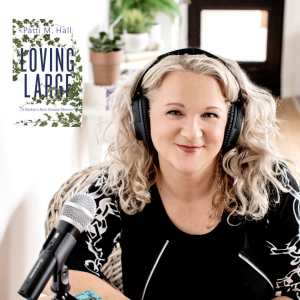
Friday Feb 05, 2021
Friday Feb 05, 2021
To kick off rare disease month, author Patti M. Hall joins host Kira Dineen to discuss her memoir Loving Large which chronicles her son’s rare disease diagnostic odyssey. Her life was pitched into an abyss of uncertainty when a golf ball–sized tumour was discovered in her teenage son’s head and he was diagnosed with gigantism, a disease of both legend and stigma. After scrambling to access a handful of medical experts in the field, Patti learned that her son could grow uncontrollably, his mobility could be permanently limited, and his life could be cut short without timely and aggressive treatment. Patti’s attention shifted fully to her son, away from her relationships as well as her own career and health. Her new normal sees her step into a dozen additional roles, including nurse, researcher, advocate, risk assessor, and promise maker, while she struggles and fails to rebuild her life as a recently divorced woman. When the unthinkable strikes, parents Love LARGE. Now, Patti serves as an advocate for the rare disease community by serving as a member of the Board of Directors for AcromegalyCanada. Enter our giveaway here to win your own copy of Loving Large! For additional entries head over to our Instagram post. This episode is brought to you by Picture Genetics, a unique DNA testing service, with tests designed for every stage of life -- including family planning. With a Picture Parenting carrier test, you can uncover genetic conditions that may be passed on to your kids (such as cystic fibrosis or fragile X syndrome). Unlike other companies, this is actually a clinical grade test where physicians and genetic counselors are involved. It’s easy to order and understand with good looking reports! To order your Picture Genetics test, go to picturegenetics.com and use code “DNATODAY” for 25% off and free-shipping! Get actionable genetic insights today to benefit your family of tomorrow. On This Episode We Discuss:Diagnostic Odyssey “From sore knees to a brain tumor”Symptoms of gigantism Gigantism vs AcromegalyJoining the rare disease communityMother son relationship through diagnosis and treatmentsFiltering medical information for rare disease kidsImpact of a rare disease on siblingsGenetic research for gigantism Sequel to Loving Large Learn more about Patti Hall on her website and stay updated with her writing and advocacy on her Instagram. Her podcast, “Reframe your Life” addresses issues relevant to women beyond career building and child-rearing. Don’t forget to enter our giveaway for a copy of Loving Large here. You can also get extra entries through our Instagram! Continue our rare disease month celebrations with the next new episode of DNA Today on February 19th! You can also hear 20+ rare disease interviews on previous episodes of the show listed here. New episodes are released on the first and third Friday of the month. In the meantime, you can binge over 130 other episodes on Apple Podcasts, Spotify, streaming on the website, or any other podcast player by searching, “DNA Today”. See what else we are up to on Twitter, Instagram, Facebook, YouTube and our website, DNApodcast.com. Questions/inquiries can be sent to info@DNApodcast.com.
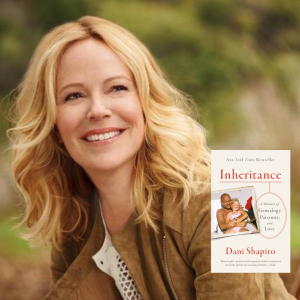
Friday Jan 15, 2021
Friday Jan 15, 2021
Enter the our “Inheritance” book giveaway on our Instagram, Twitter, and Facebook.Author Dani Shapiro joins host Kira Dineen to discuss her instant New York Times best selling memoir, Inheritance, which is being adapted into a film. Her other books include the memoirs Hourglass, Still Writing, Devotion, and Slow Motion, and five novels including Black & White and Family History. She teaches writing workshops around the world, including Columbia, New York University, and the Sirenland Writers Conference in Italy.Dani is a fellow podcaster in collaboration with iHeartMedia to host Family Secrets. An Apple Top 10 podcast, the series features stories from guests who—like Dani— have uncovered life-altering and long-hidden secrets from their families’ past. Her show is also being adapted to the screen! She lives with her family in Litchfield County, Connecticut.On This Episode We Discuss:Premise of her memoir Inheritance Understanding DTC (Ancestry/23andMe) test results using GEDmatchFirst reaction to finding out her father was not her biological fatherDiscussing non paternity with family and friendsTools and methods to track down her biological fatherApproach to contacting her biological father Egg/sperm donation in the 1960sAltering family health history Advice for those considering DTC testing Don’t forget to enter the book giveaway for a copy of Inheritance! Further details on our Instagram, Twitter, and Facebook.Check out Dani’s iHeartMedia podcast, “Family Secrets”. You can learn more about Dani Shapiro on her website and keep up with her through her Instagram. Stay tuned for the next new episode of DNA Today on February 5th! New episodes are released on the first and third Friday of the month. In the meantime, you can binge over 140 other episodes on Apple Podcasts, Spotify, streaming on the website, or any other podcast player by searching, “DNA Today”. See what else we are up to on Twitter, Instagram, Facebook, YouTube and our website, DNApodcast.com. Questions/inquiries can be sent to info@DNApodcast.com.
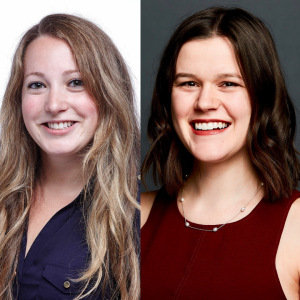
Friday Jan 01, 2021
Friday Jan 01, 2021
To kick off 2021, we have a big announcement! All episodes of the show will now be recorded in video as well as audio. You can watch this episode on our YouTube channel here or search “DNA Today Podcast”. In this episode three genetic counselors share their experience and advice taking the American Genetic Counseling Board exam. Boards Topics Discussed: Structuring material with a study planAreas to focus on including Prenatal, Metabolic, Cancer, Neuro, Cardiac, Quant, and Psych Taking the exam in February vs August Studying while working vs before working Boards Course overall, price, and CEUsResources including “A Guide to Genetic Counseling”, NSGC Practice Guidelines, Top 100 Genetic Diseases, and moreStudy groups including social media (Feb Boards 2021)Study TipsWhen studying the inheritance pattern, think which are on carrier screening to figure out if it’s autosomal recessive Look for the unique findings for less common conditionsLook at difference between types of conditions or similar conditionsInsight on practice exam Perspective on retaking the exam (You are not alone!)The PanelAlly Abbott is an American Board certified Pediatric Genetic Counselor at Phoenix Children’s Hospital. She earned her Bachelor of Arts in Psychology and a minor in Biology from Loyola Marymount University in Los Angeles, CA in 2017. In undergrad, she took a seat as a senator in student government and focused on educating the campus about mental health and the stigma surrounding mental health disorders. She later founded Active Minds at LMU, a club devoted to this purpose. Ally has always loved working with kids and found a passion for children with genetic conditions while working at The Painted Turtle, a nonprofit, free-of-charge, camp for children with serious medical conditions such as skeletal dysplasia, hemophilia, metabolic disorders, and muscular dystrophy. After graduation, she moved to New York and worked in a preschool before earning her Master of Science in Human Genetics from Sarah Lawrence College in Bronxville, NY in 2020. Ally is a Phoenix native and is happy to be back in valley at PCH, where she spent her Sundays in high school volunteering. In her spare time, she likes cozying up with her cat and a good podcast as well as spending time with her family. You can keep up with Ally on her instagram. Dani Kupperman is an American Board certified Cancer Genetic Counselor at Danbury Hospital. She earned her Bachelor of Science in Health Behavior Science and a minor in Business Administration from the University of Delaware in Newark, DE in 2016. During her undergraduate studies, she interned at the Helen F. Graham Cancer Center genetic counseling clinic where she discovered her love of cancer genetics. Dani pursued her Master of Science in Genetic Counseling at Long Island University-Post in Brookville, NY in 2018. In her current role, Dani has enjoyed the pleasure of meeting with patients to help guide them through their decision making process as to whether to pursue genetic testing. She has also expanded her role to include student supervision, research, community education, participation in the hospital’s ethics committee, and is currently starting a Patient and Family Advisory committee to improve patient experience. In her spare time, she enjoys spending time with her family, attending live concerts, and binge watching the television show, “Friends”. Kira Dineen, MS, LCGC, CG(ASCP)CM is a certified prenatal genetic counselor at Maternal Fetal Care, PC in Stamford, CT. Kira also has 10 years of online media experience in digital marketing and podcasting/radio including 5 podcasts. She started her main show “DNA Today: A Genetics Podcast” in 2012 which became a radio show in 2014. The podcast has since produced over 130 episodes interviewing experts in the field. “DNA Today” recently won the People’s Choice Podcast Awards for the Best 2020 Science and Medicine Podcast. Kira is also the host of the PhenoTips Speaker Series, a live webinar interviewing genetic experts attended by over 700 genetic counselors around the globe. She writes a monthly blog series, “Explained By A Genetic Counsellor” for Sano Genetics. Kira was selected and currently serves as a member of the National Society of Genetic Counselors’ Digital Ambassador program (#NSGCGenePool). She received her Diagnostic Genetic Bachelor’s of Science degree at the University of Connecticut and is a certified Cytogenetic Technologist. Kira received her Master’s of Science in Human Genetics at Sarah Lawrence College in New York. You can keep up with Kira on Twitter. For more Genetic Counseling Boards insider info, listen to Episode 126 with Adam Buchanan. He was the President of the American Board of Genetic Counseling in 2020 and shared his insight and advice on the Boards exam including taking the exam in the online format. Stay tuned for the next new episode of DNA Today on January 15th, 2021! New episodes are released on the first and third Friday of the month. In the meantime, you can binge 137 other episodes on Apple Podcasts, Spotify, streaming on the website, or any other podcast player by searching, “DNA Today”. See what else we are up to on Twitter, Instagram, Facebook, YouTube (now with video podcasts!) and our website, DNApodcast.com. Questions/inquiries can be sent to info@DNApodcast.com.
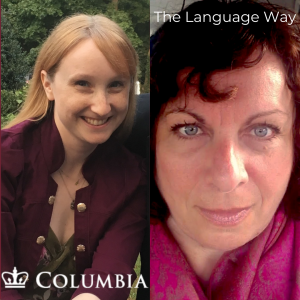
Friday Dec 18, 2020
Friday Dec 18, 2020
This episode we are exploring medical interpreting in genetic counseling and other areas of healthcare. Joining me are Genetic Counselor Nina Harkavy and Interpreter Lorraine Way. Nina is a prenatal genetic counselor at Columbia University. She graduated from the John Hopkins University/ NHGRI genetic counseling training program. Lorraine is a Spanish Instructor, medical interpreter and the President of Language Way, a language service company. She has a master’s in French from Middlebury College where she also studied Spanish. On This Episode We Discuss:Improved counseling experience speaking in SpanishDifference between translation and interpretation How healthcare providers can alter their communication with non-native English speakersTips for working with interpretersStandard for interpretation especially with family membersMaintaining cultural sensitivity when belief systems may impede the decision-making processConcepts that are challenging to interpret into Spanish and ways to phrase differentlyApproaches to check in with patients about their understandingMiscommunications between healthcare providers and interpreters Handling an interpreter who is not accurately interpreting Training to be a professional interpreterQualities to look for when hiring an interpreter Learn more about Lorraine way business through her website, thelanguageway.comImagine a health record system that’s actually designed for genomics, available in 6 different languages, and complete with pedigree drawing, diagnostic insights and more. Well stop imagining and start using, because PhenoTips is nothing like your EHR, it’s the world’s first Genomic Health record system that captures family history seamlessly, regardless of the language patients are comfortable with. Because clear communication is the root of supportive care. Visit phenotips.com to learn more. Check out our sponsor at PhenoTips.com to learn more. Also sponsoring this episode is Genobank, the first anonymous DNA storage and sharing platform that is completely controlled by you with blockchain technology. Here’s the really cool aspect about Genobank, you can choose who you are sharing your DNA with including researchers. You can be a partner in research by choosing specific institutions who can use your DNA in their research projects. Genobank has officially launch at genobank.io, where you can learn more and purchase a kit. Stay tuned for the next new episode of DNA Today the first week of January. New episodes are released on the first and third Friday of the month. In the meantime, you can listen to over 130 other episodes on Apple Podcasts, Spotify, streaming on the website, or any other podcast player by searching, “DNA Today”. See what else we are up to on Twitter, Instagram, Facebook and iTunes. Questions/inquiries can be sent to info@DNApodcast.com.
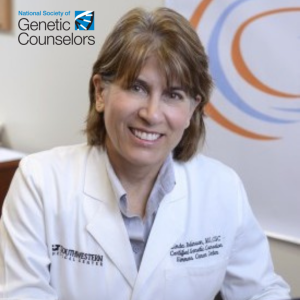
Friday Dec 04, 2020
Friday Dec 04, 2020
Our profession has evolved over the last 50 years from a small dedicated group of genetic counselors to over 5,000 individuals in the United States, with sister organizations in Canada, Europe and Australia. Just as the field of genetics has evolved over the last 40 years, so has the National Society of Genetic Counselors (NSGC) and genetic counselors. In this podcast episode, Linda Robinson joins host Kira Dineen to highlight what hot topics, historical accomplishments, challenges, barriers and opportunities during the last 50 years of genetic counseling. Linda Robinson is a retired genetic counselor. She worked primarily prenatal and cancer roles at UCLA , University of Texas Southwestern Medical Center and the California Department of Health. Linda retired as the Assistant Director of Cancer Genetics at The University of Texas Southwestern Medical Center and is currently a consultant grant writer there. She has a long list of publications, grants and awards. Linda has been a very active member of the National Society of Genetic Counselors (NSGC) on countless committees, currently she is in the Late Career SIG. On This Episode We Discuss:Importance of Genetic Counseling History Roots of Genetic Counseling at Sarah Lawrence in 1969Need for the ProfessionCoining Term “Genetic Counselor” and Runner Up Titles The First Genetic Counseling Jobs, Speciality and TestsNational Society of Genetic Counselors (NSGC) Foundation Evolution in Last 50 Years: Challenges, Technology Advancements, Licensure etc. NSGC Online TimelineCurrent Number of Genetic Counselors and Programs Future of Genetic CounselingDon’t forget to check out NSGC’s interactive timeline here! Stay tuned for the last DNA Today of the year on December 25th, 2020. New episodes are released on the first and third Friday of the month. In the meantime, you can listen to over 130 other episodes on Apple Podcasts, Spotify, streaming on the website, or any other podcast player by searching, “DNA Today”. See what else we are up to on Twitter, Instagram, Facebook and iTunes. Questions/inquiries can be sent to info@DNApodcast.com.
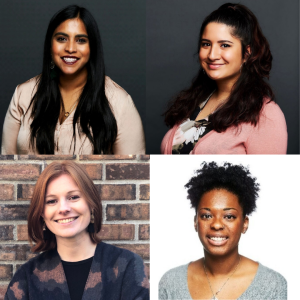
Monday Nov 23, 2020
Monday Nov 23, 2020
The National Society of Genetic Counselors (NSGC) hosted its annual conference virtually this past weekend with a new record for attendance. In this special extended installment of DNA Today we are recapping and reflecting on a few sessions from the conference. Thanks to our sponsor for this episode, PhenoTips. Imagine a health record system designed specifically for genomics. Cause let’s be honest, electronic health records are not built for genetics. Now you can stop imagining and start using, because PhenoTips is just this! PhenoTips is the world’s first complete Genomic Health record system with pedigree drawing, standardized symptom capture, diagnostic insights and more, all in one place. Check them out at PhenoTips.com. TimestampsAishwarya Arjunan 1:30-24:20Rebekah Hutchins 25:17-38:50Courtney Studwell 38:50-53:05Ashlyn Enokian 53:05-56:05Presentations Recapped/RecommendedDrawing the line with ECS: When does expanded carrier screening turn into excessive carrier screening? Live Tweet Threads by DNA Today and Aishwarya Arjunan More Than Just Raising Our Voices: Confronting Injustices in Patient Care Beyond common aneuploidies: Expanding existing chromosome testing technologies and subsequent prenatal care Live Tweet Thread by DNA TodayTransfer of Mosaic Embryos following PGT-A: Updates, Ethics, and Implications Live Tweets by DNA Today (1, 2, 3, 4, 5, 6, 7)2020 Janus Lecture: Ovarian Cancer: A Model for Progress in GeneticsPariah or Pioneer? Stories of Expansion Into New and Emerging Genetic Counselor RolesMastering the Art of Advocacy through Media Relations The PanelAishwarya Arjunan, MS, MPH, CGC, CPH graduated with degrees in genetic counseling and public health genetics from the University of Pittsburgh in 2013 and was certified by the American Board of Genetic Counseling in 2014. She currently works at Myriad Women's Health (formerly Counsyl), a women's health genetic testing and genetic counseling company, as the Clinical Product Manager for the Foresight Carrier Screen. Prior to joining Counsyl/Myriad, Aishwarya was a clinical genetic counselor at the Sarnoff Center for Jewish Genetics and Ann & Robert H Lurie Children’s Hospital in the Department of Genetics, Birth Defects, and Metabolism. Within the Northwestern Genetic Counseling Program, Aishwarya is a core faculty member and serves as a thesis advisor/committee member and has participated in the Admissions Committee and Internet Resources Task Force. Aishwarya is actively involved with the National Society of Genetic Counselors (NSGC) as the 2019 co-chair of the Diversity and Inclusion Task Force and incoming Director At Large for the NSGC Board of Directors. She is also involved locally with the Illinois Society of Genetic Professionals (ISGP) and is a past-president of ISGP. At NSGC 2020 she was honored with the Leader in Cultural Advocacy Award. You can follow Aishwarya on Twitter. Rebekah Hutchins, MS, GC is a perinatal genetic counselor. Currently, she practices at Northside Hospital in Atlanta, Georgia and previously in Hawaii Pacific Health in Honolulu, Hawaii. She received her M.S. in Human Genetics from Sarah Lawrence College’s Joan H. Marks Program. Rebekah has always been passionate about social justice and identifying, dissecting and combating health disparities in marginalized communities. Now as a healthcare professional she identifies innovative ways to bridge those gaps in her work. During her time at Sarah Lawrence College, she developed a cultural competency course for genetic counselors which she has presented twice. You can follow Rebekah on Twitter. Courtney Studwell, MS, CGC, MB(ASCP)CM is a licensed certified genetic counselor at Brigham and Women's Hospital, Boston and is also certified as a Technologist in Molecular Biology through the American Society for Clinical Pathology (ASCP). She counsels patients in the CFMRG and participates in the development and management of genetic testing platforms in the CAMD. She earned her master's degree in Genetic Counseling from Boston University School of Medicine and undergraduate degree in Diagnostic Genetic Sciences from University of Connecticut. You can follow Courtney on Twitter. Ashlyn Enokian, MS, GC is a prenatal genetic counselor at High Risk Pregnancy Center in Las Vegas, NV. Her journey into the field of genetic counseling began with advocacy work through Crisis Text Line and Help Pregnancy Crisis Aid. She worked as a genetic counseling assistant in cancer genetics at Saint Joseph Mercy Hospital, pediatric genetics at the University of Michigan, and laboratory genetics at Progenity, Inc. Ashlyn was previously a genetics graphic design intern at My Gene Counsel. Her professional interests include prenatal, ART/fertility, education, and strategies to increase diversity in the field. She earned her B.S. in Biology and a minor in Criminal Justice from Grand Valley State University in 2017. Followed by her M.S. in Human Genetics from Sarah Lawrence College’s Joan H. Marks Program. You can follow Ashlyn on Twitter. Kira Dineen, MS, LCGC, CG(ASCP)CM is a certified prenatal genetic counselor at Maternal Fetal Care, PC in Stamford, CT. Kira also has 10 years of online media experience in digital marketing and podcasting/radio including 5 podcasts. She started her main show “DNA Today: A Genetics Podcast” in 2012 which became a radio show in 2014. The podcast has since produced over 130 episodes interviewing experts in the field. “DNA Today” recently won the People’s Choice Podcast Awards for the Best 2020 Science and Medicine Podcast. Kira is also the host of the PhenoTips Speaker Series, a live webinar interviewing genetic experts attend by over 700 genetic counselors around the globe. She writes a monthly blog series, “Explained By A Genetic Counsellor” for Sano Genetics. Kira was selected and currently serves as a member of the National Society of Genetic Counselors’ Digital Ambassador program (#NSGCGenePool). She received her Diagnostic Genetic Bachelor’s of Science degree at the University of Connecticut and is a certified Cytogenetic Technologist. Kira received her Master’s of Science in Human Genetics at Sarah Lawrence College in New York. You can follow Kira on Twitter. PosterPresentations Conference Tips (Virtual & In-Person)Exhibit hall for networking, free genetics apparel, job board, professional and fun photos.Wear layers because lecture halls are freezing.Lunch sessions are free and sponsored by labs. Prioritize select sessions to attend live, there is too much to do everything and you can watch later on demand until it expires January 15th. Attend a Special Interest Group (SIG), you don’t have to be a member.Follow and join conversations on Twitter (#NSGC20 and #gcchat)Students, job hunt utilizing the job board (in the middle of the exhibit hall) and hand out your resume. If there is a meet up with a specific company/hospital you are interested in working with/at, then go check it out!ResourcesBe sure to check out all these resources mentioned during the episode. JGC Task Force ReportAll the special issuesSign up for the Focus GroupsStay tuned for the next new episode of DNA Today on December 4th. New episodes are released on the first and third Friday of the month (except this week, thanks for waiting!). In the meantime, you can binge over 130 other episodes on Apple Podcasts, Spotify, streaming on the website, or any other podcast player by searching, “DNA Today”. See what else we are up to on Twitter, Instagram, Facebook, YouTube and our website, DNApodcast.com. Questions/inquiries can be sent to info@DNApodcast.com.
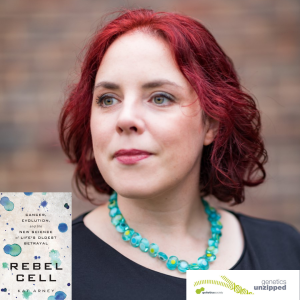
Friday Nov 06, 2020
Friday Nov 06, 2020
Please keep our 2020 Best Science and Medicine Podcast Award momentum going and vote for “DNA Today” for Podcast Magazine’s “Hot 50” Podcasts! You can take 60 seconds to vote here now.Dr. Kat Arney is our guest in this episode of DNA Today. She is a fellow genetics podcaster! She is an award-winning science writer, author, presenter, broadcaster, and public speaker. Her voice will probably be familiar to you as she has appeared on radio and TV around the world including BBC Radio 4, the Naked Scientists and Naked Genetics podcasts, and more recently as the host of the Genetics Unzipped podcast. She has written for outlets including the Times Educational Supplement, BBC Science Focus, the Daily Mail, Wired, BBC Online, The Guardian, and New Scientist. Dr. Arney has authored three popular science books: “Herding Hemingway’s Cats: Understanding How Our Genes Work”, “How to Code a Human” and her new book, “Rebel Cell: Cancer, Evolution, and the New Science of Life's Oldest Betrayal”. Enter our giveaway to win a copy of the book on our Twitter, Instagram, and Facebook.On This Episode We Discuss:Cancer from an evolutionary lensEvolutionary origins of cancer at the start of multicellular lifeCancer identified through DNA from fossilized skeletonsCancer in other species, species without cancerCorrelations between cancer development and species relationshipConservation of cancer genesPeter Nowell’s 40 year old paper, “The Clonal Evolution of Tumor Cell Populations”Definition of a cancerous cellEV-001 reveals the complexity of cancer developmentOverestimate of of cancer after the development of GleevecCancer evolutionary perspective adding in precision medicineSearch “Genetics Unzipped” in your podcast player to hear Dr. Arney’s show. This is a crossover episode as our host Kira Dineen, was also a guest on Genetics Unzipped in September, where she was interviewed about prenatal genetic counseling. Check out the episode titled, “Podcast Rare Genetic Disorder and Pregnancy—Navigating an ’Emotionally Challenging’ Journey.”Learn more about the book at RebelCellBook.com and keep up with Kat on Twitter, @Kat_Arney and @geneticsunzip.In 2016, Elizabeth Turner saw a need to increase access to genetic counseling. This was the inspiration for her to start Advanced Tele-Genetic Counseling. Now during a pandemic there has never been a better time to book a telehealth genetic counseling consult! Cancer genetics is one of many areas that AT-GC specializes in. Their team of genetic counselors are specifically trained to help understand, interpret, and navigate complex genomic information. All genomes have a story to tell. If you are ready to learn yours head over to AT-GC.com to book your appointment with a genetic counselor today.We receive a lot of emails from listeners interested in genetic careers and we love connecting and providing resources. One of those is Keck Graduate Institute’s genetics programs in Southern California. KGI offers a master’s degree in genetic counseling, but for those of you looking for something slightly different - KGI also has a first-of-its-kind graduate program in genomic data analytics. This two-year master’s program gives students the opportunity to work side-by-side with applied life scientists and future genetic counselors while gaining hands-on experience with the technologies and information that are revolutionizing the future of medicine. Learn more about the program by visiting kgi.edu/dnatoday.Stay tuned for the next new episodes of DNA Today released on the first and third Friday of the month. In the meantime, you can listen to over 130 other episodes on Apple Podcasts, Spotify, streaming on the website, or any other podcast player by searching, “DNA Today”.Don’t forget to vote for “DNA Today” for Podcast Magazine’s “Hot 50” Podcasts! You can take 60 seconds to vote here now.See what else we are up to on Twitter, Instagram, Facebook, YouTube and our website, DNApodcast.com. Questions/inquiries can be sent to info@DNApodcast.com.
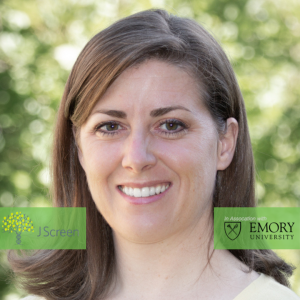
Friday Oct 16, 2020
Friday Oct 16, 2020
This episode is the last installment of our 7 part direct-consumer genetic testing series. Joining for this episode is guest Melanie Hardy, Assistant Director of JScreen Genetic Counseling Services, which is part of Emory University School of Medicine. Melanie has been an active member in The National Society of Genetic Counselors and the American Board of Genetic Counseling, including chairing multiple committees, workgroups and programs. She has also served on capstone committees for genetic counseling students at multiple universities.On This Episode We Discuss:Number of conditions on carrier screeningDifferent methods of carrier screeningConditions more common in people of Ashkenazi Jewish descentConditions where carriers can have symptomsLimitations of carrier screeningConditions identified on newborn screeningPotential differences between saliva and blood sampleIf carrier screening should be repeatedGenetic counseling session about carrier resultsReproductive options for carriersDuring this COVID-19 pandemic many patients and healthcare providers have turned to telehealth services. One of the first genetic counseling companies in this space was Advanced Tele-Genetic Counseling in 2016. AT-GC was conceptualized and grown by genetic counselors so that patients like you could access a genetic counselor no matter where you live. Their services are more important than ever to reduce your exposure during the pandemic. Learn more and book your appointment today with a board certified genetic counselor at AT-GC.com.Learn more about JScreen on their website, JScreen.org. Stay tuned for the next new episode of DNA Today on November 6th, 2020! New episodes are released on the first and third Friday of the month. In the meantime, you can binge over 130 other episodes on Apple Podcasts, Spotify, streaming on the website, or any other podcast player by searching, “DNA Today”.See what else we are up to on Twitter, Instagram, Facebook, YouTube and our website, DNApodcast.com. Questions/inquiries can be sent to info@DNApodcast.com.
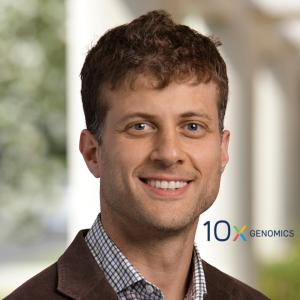
Friday Oct 02, 2020
Friday Oct 02, 2020
Exciting Announcement: This week “DNA Today” won the Best 2020 Science and Medicine Podcast in The 15th Annual Podcast Awards! This is thanks to each and every listener who nominated and voted for the show. THANK YOU for being such loyal listeners for the past 8 years. We’ve been nominated for four years, and it’s incredible to win this year! For those that aren’t familiar, The Podcast Awards are the longest running podcast awards event open to shows worldwide, this year there was 250,000 people who nominated shows.Michael Schnall-Levin joins host Kira Dineen on this episode to explore genetic testing technology including next-gen sequencing, single cell sequencing and bioinformatics. This episode is part 6 of our ongoing direct-consumer genetic testing series, check out our previous episodes for other deep dives into DTC topics.Michael is the Senior Vice President President of Product, Research and Development and Founding Scientist at 10x Genomics. Before joining 10x Genomics, Michael was an NSF postdoctoral fellow with Eric Lander at the Broad Institute where he worked on developing novel applications of DNA sequencing technologies. Prior to that, Michael worked at Foundation Medicine, where he developed some of the early algorithms to accurately detect mutations in patient tumor samples. Michael earned his PhD in Mathematics from MIT with Bonnie Berger, where he was both a Hertz fellow and NDSEG fellow, and his BA in Physics from Harvard College.On This Episode We Discuss:Steps to Sequence DNA/RNASanger and Next Gen SequencingSingle Cell SequencingProcess, Accuracy, AdvantagesUltiziting in Cancer, ImmunotherapyBioinformaticsFuture of Genetic TestingLearn more about 10X Genomics on their website, Twitter and Facebook.Picture Genetics is our sponsor for this DTC genetic testing series and offers a unique DNA testing service. These tests are designed for every stage of life, from family planning and newborn health, to personal wellness and disease risk. Unlike other companies, this is actually a clinical grade test where physicians and genetic counselors are involved. The test sequences entire genes that are medically actionable. It’s easy to order and understand with good looking reports! To order your Picture Genetics go to picturegenetics.com and use code “DNATODAY” for 25% off and free-shipping! Get actionable genetic insights today to benefit your family of tomorrow.Stay tuned for the next new episode of DNA Today on October 23th where we continue our direct-to-consumer genetic testing podcast series! New episodes are released on the first and third Friday of the month. In the meantime, you can listen to over 130 other episodes on Apple Podcasts, Spotify, streaming on the website, or any other podcast player by searching, “DNA Today”.See what else we are up to on Twitter, Instagram, Facebook and iTunes. Questions/inquiries can be sent to info@DNApodcast.com.








